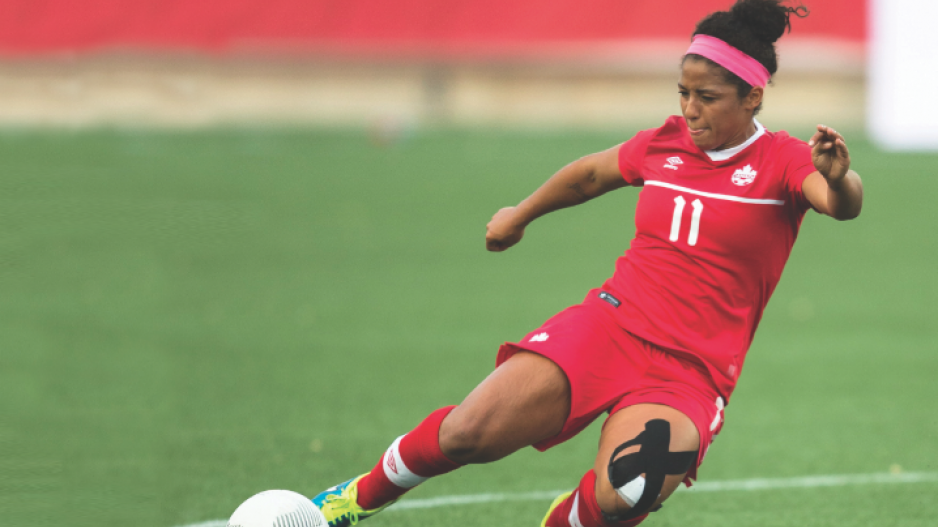Vancouver might have hosted the mother of all sporting events during 2010. But Penny Ballem, the City of Vancouver’s city manager, said the 2015 Women’s World Cup is an even bigger deal for the city than the Winter Olympic Games.
“This is a huge global event – the actual media coverage is bigger than the Winter Olympics and Paralympics,” Ballem said.
“It really is a big feather in our cap in continuing to be seen as a great sports hosting city.”
In an ideal world, all eyes would be on the beautiful game. But attention has also been focused on the ugliness at FIFA headquarters, after several high-ranking officials were arrested earlier this month on racketeering and bribery charges brought by the United States Department of Justice.
The U.S. Federal Bureau of Investigation is continuing to investigate how the 2018 and 2022 World Cup events were awarded to Russia and Qatar. For several years, media reports have described how hundreds of migrant workers have died building facilities for the 2022 World Cup in Qatar.
“The perception that there is a problem has been around for a long time, and I think it’s starting to be addressed,” Ballem said, calling the surprise resignation of FIFA president Sepp Blatter “terrific.”
“It’s obviously a concern, but it’s not going to take away from this incredible event.”
Host cities and corporate sponsors are hoping the positivity of the event will win out, but they’re also aware of the potential risk of being associated with an organization like FIFA. What they’re doing about it is another matter.
“When we see something happening with FIFA where you see negative attachment to the FIFA brand, sponsors have to be careful that’s not being transferred to their brand,” said Ann Pegoraro, director of the Institute for Sports Marketing at Laurentian University. 
Major sponsors like McDonald’s – which sponsors both the Olympics and FIFA – are more aware of the risks after bad experiences during the 2014 Winter Olympics in Sochi when activists hijacked a McDonald’s hashtag to draw attention to what they claimed was Russia’s oppression of lesbian and gay people.
Just a few months later during the 2014 World Cup in Brazil, McDonald’s “got out in front” of criticism of how the event had displaced poor people by highlighting its contributions to youth soccer in Brazil, Pegoraro said.
Visa (NYSE:V) has taken the strongest stance, threatening to pull out of its sponsorship deal if FIFA didn’t make efforts to change its culture. But Pegoraro said sponsors are still too reluctant to wield their full influence.
“I understand they exchange money to have this benefit to be attached to large events, but they also have the ability to make this change because they do wield the dollars.”

Ecuador practices at the University of British Columbia prior to the start of the FIFA Women's World Cup | Chung Chow
The City of Vancouver hasn’t actively lobbied FIFA on social justice and ethics issues, but Ballem said host cities could and perhaps should take a more active role.
“We have a lot of accountability and responsibility, and it’s our brand,” she said. “It’s our future that’s on the line, but I think we’re just starting to realize that as host cities around the world we also have a lot of leverage.”
The financial challenge for the Women’s World Cup will likely not be from the FIFA scandal, but from persistent gender inequity in sport, Pegoraro said.
The tournament had difficulty attracting national sponsors. Only three out of six sponsor spots were filled by Bell (TSX:BCE), Labatt and Trend Micro (Nasdaq:TMICY).
Ticket sales have thus far fallen short of organizers’ 1.5 million goal.
“Sponsorship in general, 99% of the dollars are still going to male sport,” Pegoraro said.
Ironically, Pegoraro believes the FIFA scandal could boost the Women’s World Cup profile.
“If you look at national sponsors [of the Women’s World Cup], I think those companies have a huge chance now: more eyes on the event and a bigger chance for them to [push] their message, focusing on soccer, focusing on supporting women, and I think a lot of them are going to focus on youth soccer.
“I think the big thing for them is to keep the focus on soccer and not mention FIFA."
@jenstden




